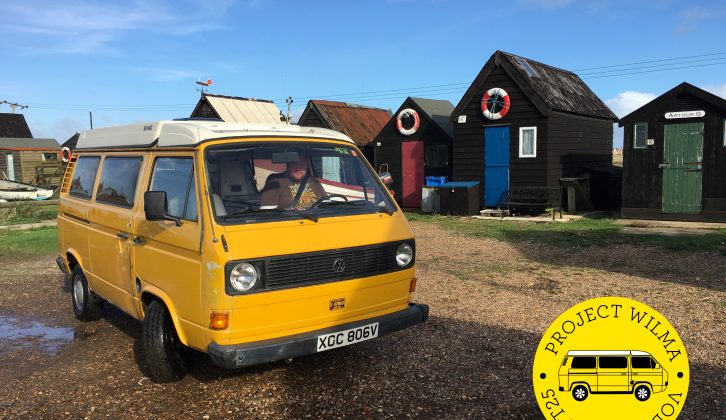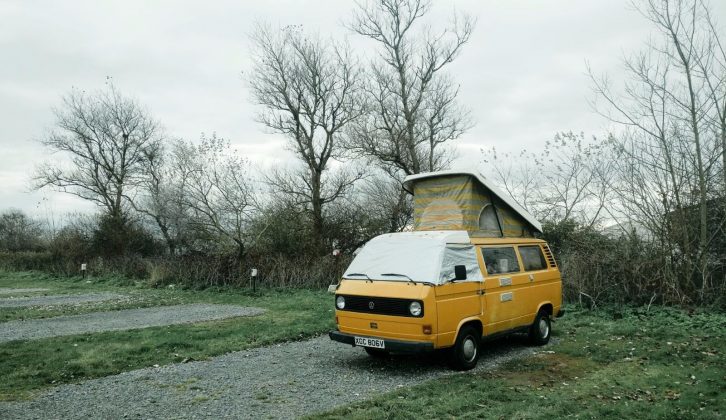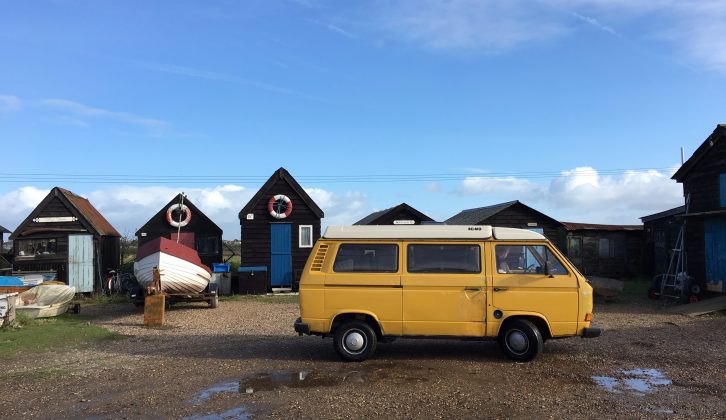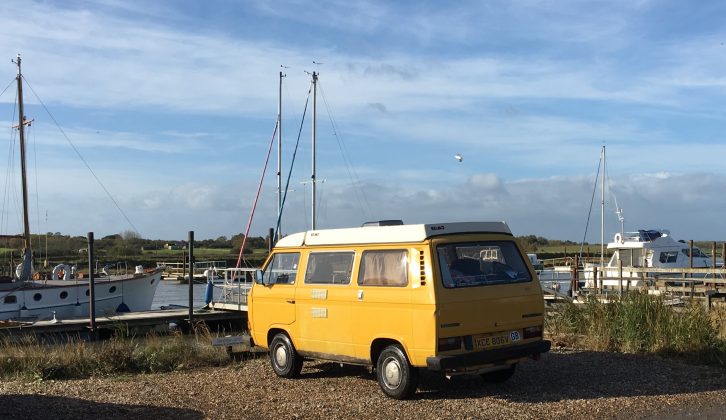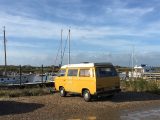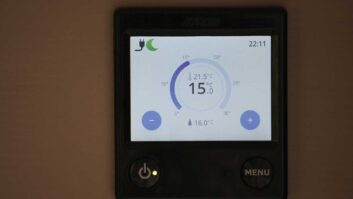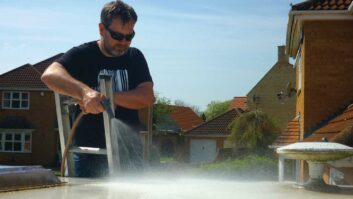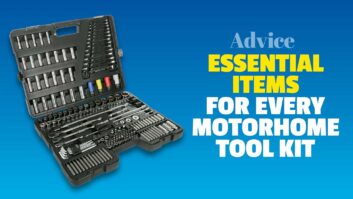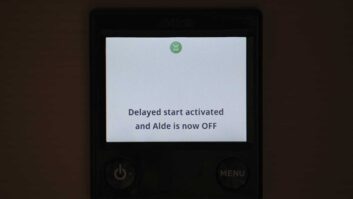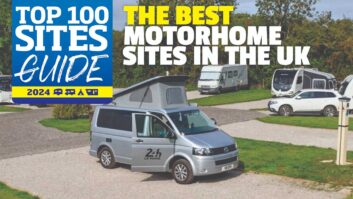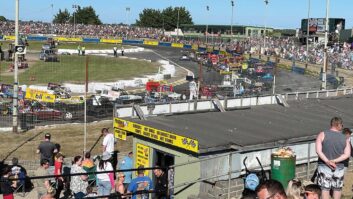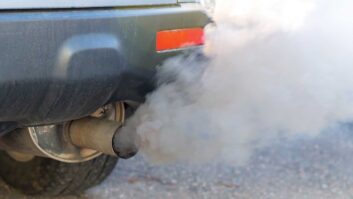If having cheap holidays had been the aim of buying our Volkswagen camper, it’s safe to say that we failed.
Comprehensively.
Many thousands of pounds have been sunk into keeping our ’van from the scrapyard, and despite the creeping collectability of the VW T25, Wilma has sailed dangerously close to the wind in the two years that she has been in our possession.
The only way is up!
She only avoided being a write-off because we decided to underwrite the repairs.
We dug deep, struck deals with insurance companies and after two years, have a VW camper van which drives very well – and the fear of ending up on a low-loader every time the key is turned has now subsided.
While there is still plainly room for cosmetic improvement, particularly externally, Wilma is now a vehicle that can be driven.
Last summer, she got us from London to Padstow, via Weymouth, on a little week-long adventure, and managed a couple of day trips and a few leg-stretchers to visit friends around the country.
VW camper van-nomics
After a few of these (basically) successful trips, thoughts turned to costs of a different type. The sort of costs that normal camper adventurers tot up. Namely, the regular running costs of going somewhere.
It was surprisingly hard to get a target MPG figure for our VW camper van. Among fans of air-cooled Volkswagens, people do discuss economy, but for most owners, these vehicles are cherished trinkets.
What your VW Beetle or split-screen Bus does to the gallon isn’t as important as how it looks, whether it is working and where you go in it.
These days though, T25 campers and ’vans straddle the warm embrace of the Volkswagen scene, and those who are looking for a compact camping vessel without needing to remortgage.
We’re in the latter category and, as such, do take note of how much our holidays cost.
A modern camper van based around a common-rail diesel engine will best 30mpg, without trying.
Depending on the style of the ’van, and the driver in fact, they may nudge 35 or even 40mpg. That is progress.
In the 38 years since Wilma rolled down production line, everything has got better, despite what you may think. Better brakes, more power and more comfort. And considerably better economy.
Doing the maths
So how much better? Well, calculating the fuel economy on our camper is a bit of a handful.
In the UK, we use miles per gallon. Seeing as fuel hasn’t been sold in gallons since before Bucks Fizz, it’s not an obvious metric any more, but seeing as the rest of Europe uses litres per kilometre and our roads are still measured in miles, it’s the best we have. Miles per litre would help nobody.
Anyway, due to her being born abroad and imported to the UK, our Wilma has a speedo and odometer in kilometres per hour, and like everyone else we buy our fuel in litres.
So miles per gallon are a struggle. Or rather that might be, if we hadn’t discovered a phone app called Fuelio.
It is only available for Android phones, but it allows users to log all the costs associated with their vehicles. I don’t bother putting in how much we spent on curtains or plumbing, but I do find it useful for logging fuel economy.
It allows users to set all the metrics to whatever suits them. For Wilma, it is fuel bought in litres, distance covered in kilometres, and miles per gallon being the output.
All of which has been a long way of telling you that over 1500km of driving, our little VW camper van has managed to average 21mpg.
Old tech versus new
In modern terms, that is awful, but for a two-tonne petrol vehicle with all the aerodynamic refinement of a mid-century sideboard, that’s about where I thought it might be.
Firstly, the newly-rebuilt engine is only 1.6 litres in capacity and it uses petrol.
Modern camper engines are at least 2.0-litre units and drink diesel, which will more easily motivate a bluff vehicle along the road.
All of which means that when Wilma is bouncing down the road, that little engine is working very hard, all the time. A modern camper is barely above tickover at A-road speeds and consequently is pretty parsimonious.
The other thing is that air-cooled engines are very old technology. Properly old.
It was only a couple of years later that Volkswagen ditched air-cooled engines as they were prone to wasting energy as heat, needed very regular maintenance, placed restrictions on vehicle design and weren’t very fuel efficient.
Just enjoying the ride!
So, perhaps unsurprisingly, our little, yellow VW camper van is not a cheap vehicle to run, even when she is running.
Given the repairs she has needed and ongoing costs, it appears that we will never achieve our aim of finding a cheap route into camper van ownership, via this VW.
In truth, however, I doubt we could realistically have done better with, for example, an old Talbot Express-based ’van.
Older vehicles are prone to breakdowns, more expensive to run and, ultimately, can never be ‘cheap’.
But it doesn’t mean you can’t enjoy it. You just have to accept it.
So as an act of acceptance, I have deleted the Fuelio app, signed up for a Nectar card and decided to concentrate on planning our summer trip to France, rather than how much it’ll cost to get there.
The fear of ending up on a low-loader every time the key is turned has now subsided
